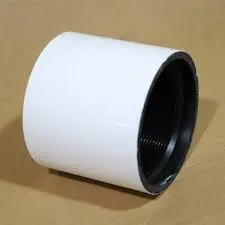- Afrikaans
- Albanian
- Amharic
- Arabic
- Armenian
- Azerbaijani
- Basque
- Belarusian
- Bengali
- Bosnian
- Bulgarian
- Catalan
- Cebuano
- Corsican
- Croatian
- Czech
- Danish
- Dutch
- English
- Esperanto
- Estonian
- Finnish
- French
- Frisian
- Galician
- Georgian
- German
- Greek
- Gujarati
- Haitian Creole
- hausa
- hawaiian
- Hebrew
- Hindi
- Miao
- Hungarian
- Icelandic
- igbo
- Indonesian
- irish
- Italian
- Japanese
- Javanese
- Kannada
- kazakh
- Khmer
- Rwandese
- Korean
- Kurdish
- Kyrgyz
- Lao
- Latin
- Latvian
- Lithuanian
- Luxembourgish
- Macedonian
- Malgashi
- Malay
- Malayalam
- Maltese
- Maori
- Marathi
- Mongolian
- Myanmar
- Nepali
- Norwegian
- Norwegian
- Occitan
- Pashto
- Persian
- Polish
- Portuguese
- Punjabi
- Romanian
- Russian
- Samoan
- Scottish Gaelic
- Serbian
- Sesotho
- Shona
- Sindhi
- Sinhala
- Slovak
- Slovenian
- Somali
- Spanish
- Sundanese
- Swahili
- Swedish
- Tagalog
- Tajik
- Tamil
- Tatar
- Telugu
- Thai
- Turkish
- Turkmen
- Ukrainian
- Urdu
- Uighur
- Uzbek
- Vietnamese
- Welsh
- Bantu
- Yiddish
- Yoruba
- Zulu
j55 coupling
Understanding J55 Coupling in Oil and Gas Industry
In the oil and gas industry, the importance of durable and reliable connections can’t be overstated. One of the key components that ensures the effective functioning of drilling operations is the coupling, particularly the J55 coupling. This essential element is designed to connect the joints of drill pipes, providing structural integrity in high-stress environments. The significance of J55 coupling goes beyond mere connections; it encompasses aspects such as efficiency, safety, and reliability in drilling operations.
What is J55 Coupling?
J55 coupling refers to a specific type of coupling used in the oil and gas industry, particularly in drilling applications. The designation J55 comes from the API (American Petroleum Institute) standards, which categorize steel grades based on their yield strength. The J55 grade typically possesses a yield strength of at least 55,000 psi, making it a suitable choice for various drilling applications. Couplings made from J55 steel are designed to withstand high pressures and heavy loads, ensuring that the drill pipe remains intact during operations.
Applications in the Oil and Gas Industry
The primary application of J55 coupling is in oil and gas drilling operations. When drilling for oil or gas, the integrity of the drill string is paramount. The entire drilling process involves penetrating tough geological formations, where the applied forces can be immense. J55 couplings are capable of enduring these extreme conditions without compromising the integrity of the drill string. They serve as the connection points between individual lengths of drill pipes, ensuring a seamless transfer of torque and weight on bit.
Furthermore, J55 couplings are utilized in various stages of drilling, including exploratory drilling and production drilling. Their versatility allows them to be adapted for different environments, whether onshore or offshore, in shallow or deep water. This adaptability makes them a preferred choice among drilling companies looking to maximize the efficiency and safety of their operations.
j55 coupling

Advantages of J55 Couplings
1. Strength and Durability As mentioned, J55 couplings are manufactured from high-grade steel with a yield strength of at least 55,000 psi, making them incredibly strong. This quality is crucial for resisting the high pressures encountered during drilling.
2. Corrosion Resistance Many J55 couplings are treated to enhance their resistance to corrosion, particularly when exposed to harsh chemicals found in drilling environments. This resistance prolongs their lifespan and reduces maintenance costs.
3. Enhanced Safety By providing a robust connection, J55 couplings significantly reduce the risk of failures that can lead to accidents, spilling of drilling fluids, or even blowouts. Their reliability contributes to a safer working environment on drilling rigs.
4. Cost-Effectiveness While the initial investment in high-quality J55 couplings may be higher than inferior alternatives, their durability and reduced risk of failure make them a cost-effective choice in the long run. Lower maintenance and downtime lead to increased efficiency and productivity.
Conclusion
In conclusion, J55 couplings play an indispensable role in the oil and gas industry, particularly in drilling operations. Their strength, durability, and effectiveness in high-stress environments make them a vital component of the drill string. By ensuring reliable connections, J55 couplings contribute significantly to the efficiency and safety of drilling operations, ultimately supporting the industry's goal of resource extraction while minimizing risks. As the oil and gas industry continues to evolve, the importance of quality components like J55 couplings will remain a cornerstone of efficient and safe drilling practices.
-
Well Casing Extension Couplings – Applications and InstallationNewsJun.06,2025
-
Types of Crossover Subs in Drilling & CompletionNewsJun.06,2025
-
Key Features of High-Quality Tubing Pup JointsNewsJun.06,2025
-
Installation and Maintenance Tips for Steel Couplings for PipeNewsJun.06,2025
-
How to Select the Right Pup Joint for Oil & Gas OperationsNewsJun.06,2025
-
Applications of Stainless Steel Pipe CouplingsNewsJun.06,2025







